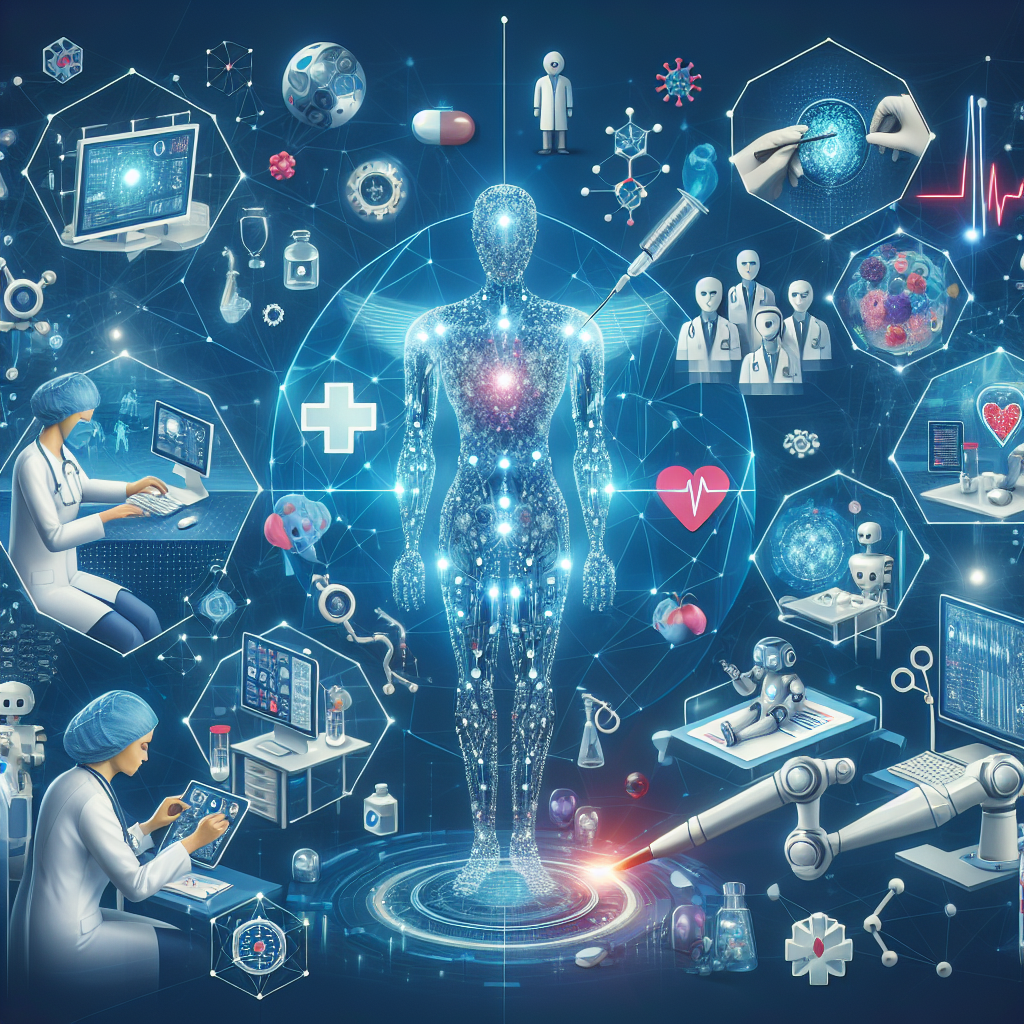Artificial General Intelligence (AGI) has the potential to revolutionize the healthcare industry by improving patient care and treatment methods. AGI refers to a type of artificial intelligence that possesses the ability to understand, learn, and apply knowledge across a wide range of domains, similar to human intelligence. In healthcare, AGI can analyze vast amounts of data, identify patterns, and make predictions to assist healthcare providers in diagnosing diseases, developing treatment plans, and improving patient outcomes.
AGI in healthcare is already making significant strides in various areas, including medical imaging, drug discovery, personalized medicine, and patient monitoring. By harnessing the power of AGI, healthcare providers can deliver more accurate and efficient care to patients, leading to better outcomes and potentially reducing healthcare costs. In this article, we will explore how AGI is transforming patient care and treatment methods in healthcare, as well as address common questions and concerns surrounding the use of AGI in the medical field.
Medical Imaging
One of the most promising applications of AGI in healthcare is in the field of medical imaging. AGI algorithms can analyze medical images, such as X-rays, MRIs, and CT scans, with a level of accuracy and speed that surpasses human capabilities. This can help healthcare providers detect diseases and conditions earlier, leading to faster diagnosis and treatment.
For example, AGI-powered algorithms can analyze chest X-rays to detect lung cancer at an early stage, when it is more treatable. Similarly, AGI can be used to analyze brain scans to identify signs of Alzheimer’s disease or other neurological disorders. By leveraging AGI in medical imaging, healthcare providers can improve the accuracy of diagnoses, reduce interpretation errors, and ultimately save lives.
Drug Discovery
Another area where AGI is revolutionizing healthcare is in drug discovery. Developing new medications is a lengthy and expensive process that often involves trial and error. AGI can help pharmaceutical companies streamline this process by analyzing vast amounts of data to identify potential drug candidates more quickly and accurately.
AGI algorithms can predict how different compounds will interact with biological systems, identify potential side effects, and even suggest novel drug targets. By leveraging AGI in drug discovery, pharmaceutical companies can bring new medications to market faster and more efficiently, ultimately improving patient outcomes.
Personalized Medicine
AGI is also driving the shift towards personalized medicine, where treatments are tailored to individual patients based on their unique genetic makeup, lifestyle, and medical history. By analyzing large datasets of patient information, AGI algorithms can identify patterns and correlations that can help healthcare providers predict how a patient will respond to a particular treatment.
For example, AGI can analyze a patient’s genetic profile to identify genetic markers that may influence their response to a specific medication. This information can help healthcare providers customize treatment plans to maximize efficacy and minimize side effects. By embracing personalized medicine powered by AGI, healthcare providers can deliver more targeted and effective care to patients.
Patient Monitoring
AGI is also being used to improve patient monitoring and management. By analyzing real-time data from wearable devices, electronic health records, and other sources, AGI algorithms can detect early signs of deterioration in a patient’s condition and alert healthcare providers to take action.
For example, AGI-powered algorithms can analyze a patient’s vital signs, activity levels, and medication adherence to identify potential complications or medication errors. This information can help healthcare providers intervene early to prevent adverse events and improve patient outcomes. By using AGI for patient monitoring, healthcare providers can deliver more proactive and personalized care to patients, leading to better health outcomes.
Common Questions and Concerns
Despite the potential benefits of AGI in healthcare, there are also concerns and questions surrounding its use in the medical field. Here are some common FAQs about AGI in healthcare:
1. Is AGI in healthcare safe?
While AGI has the potential to improve patient care and treatment methods, there are concerns about the safety and reliability of AGI algorithms. Healthcare providers must ensure that AGI systems are rigorously tested and validated before being deployed in clinical settings to minimize the risk of errors or unintended consequences.
2. Will AGI replace healthcare providers?
AGI is not intended to replace healthcare providers but to augment their capabilities and improve patient care. Healthcare providers will still play a critical role in diagnosing diseases, developing treatment plans, and delivering personalized care to patients. AGI can help healthcare providers make more informed decisions and deliver better outcomes to patients.
3. How will AGI impact healthcare costs?
While AGI has the potential to improve the efficiency and quality of healthcare delivery, there are concerns about the potential cost implications of implementing AGI systems. Healthcare providers must carefully consider the cost-effectiveness of AGI solutions and ensure that they deliver value to patients and healthcare systems.
4. What are the ethical implications of AGI in healthcare?
AGI raises important ethical considerations, such as privacy, consent, and transparency. Healthcare providers must ensure that AGI systems comply with ethical guidelines and regulations to protect patient rights and ensure the responsible use of AI technologies in healthcare.
In conclusion, AGI has the potential to revolutionize patient care and treatment methods in healthcare by improving medical imaging, drug discovery, personalized medicine, and patient monitoring. By leveraging the power of AGI, healthcare providers can deliver more accurate, efficient, and personalized care to patients, leading to better outcomes and potentially reducing healthcare costs. While there are concerns and questions surrounding the use of AGI in healthcare, healthcare providers must carefully consider the benefits and risks of implementing AGI solutions to ensure the responsible and ethical use of AI technologies in the medical field.

